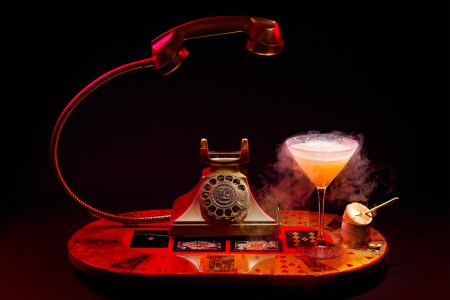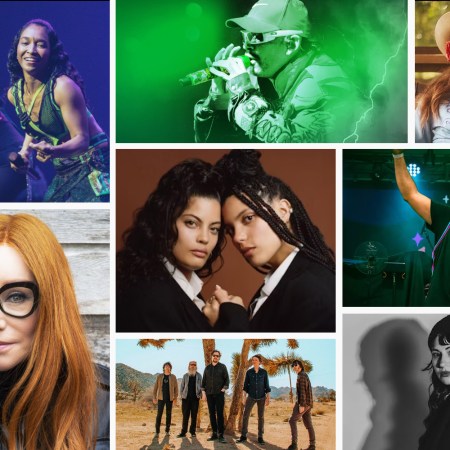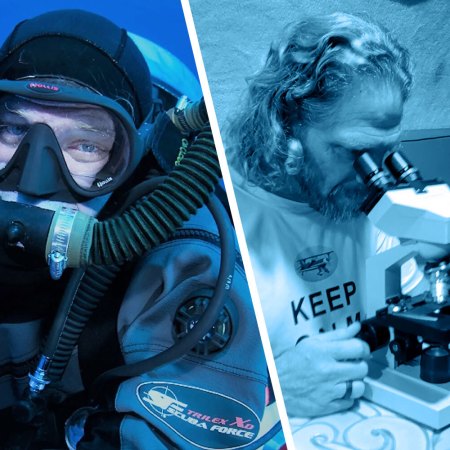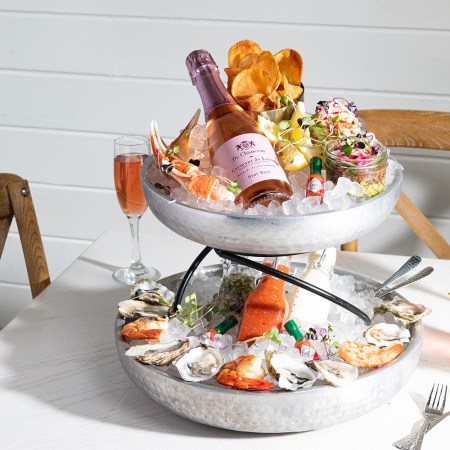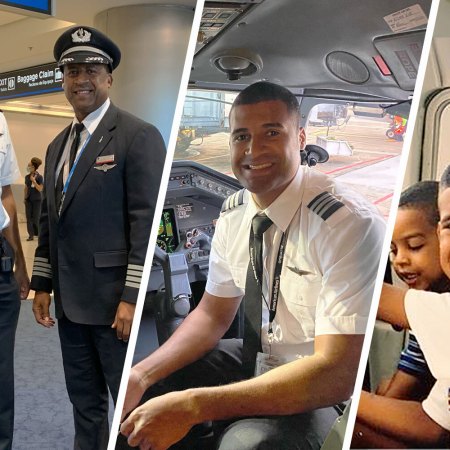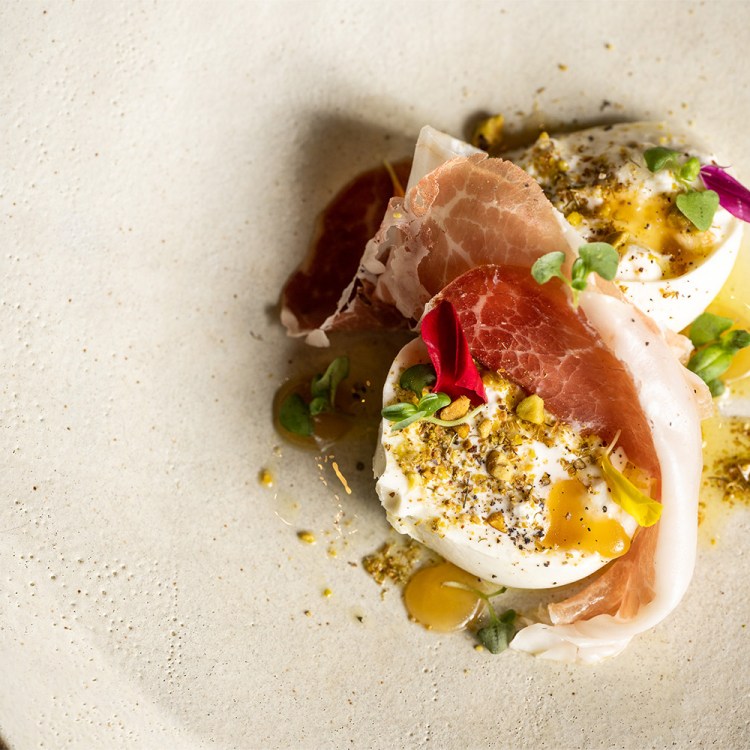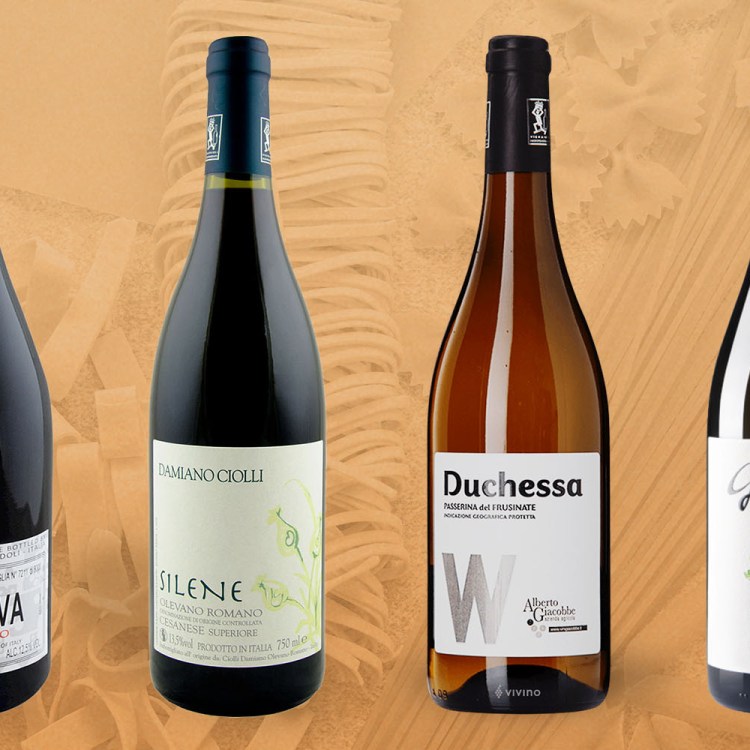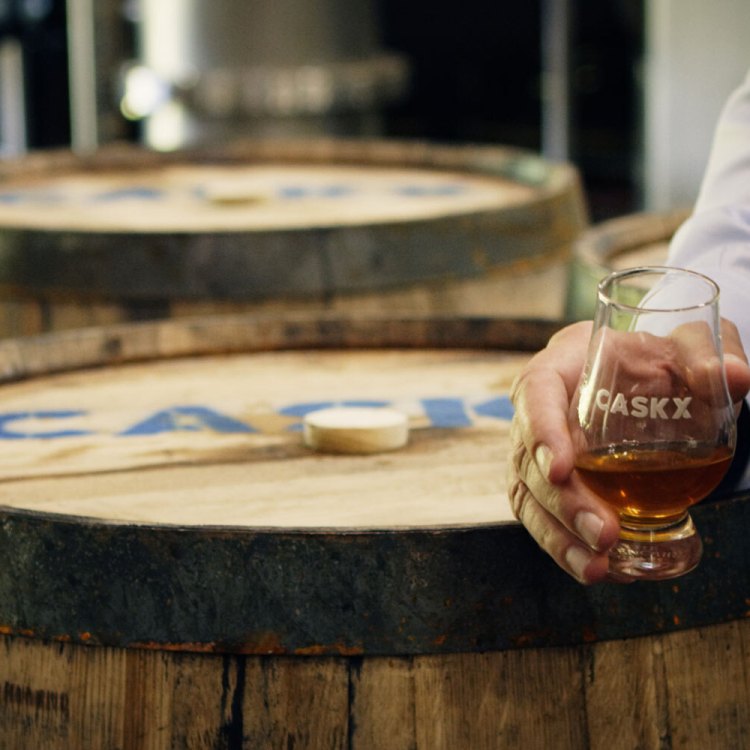All things being equal, we’d prefer to never again be asked if we know “how the menu works” at some hot new restaurant. There might, however, be a single exception: At least one new menu at Miami Art Week probably does require a bit more explanation, as it features offerings like a “mousse of roasted hopes” and a tart evoking the “whistle that the wind makes through a door lock on a cold autumn afternoon.”
No, it’s not The Menu (though, temperamentally, it’s close). This is Aerobanquets RMX, a mixed-reality, immersive gastronomy experience marrying the talents of Italian installation artist Mattia Casalegno and Michelin-starred, James Beard Award-winning chef Chintan Pandya. During the banquet, which runs through December 4, a maximum of 16 guests at a time are ushered into a space evoking a futuristic dining room, and, sporting Meta Quest 2 VR headsets, they dine upon five to seven courses, accompanied by a surreal text narrated by Gail Simmons of Top Chef fame.
“The menu, the way she describes it, it’s completely surreal, it’s very fantastical,” says Casalegno. And since the menu is secret, “your imagination is really completely open and is really trying to focus more on taste.”
The inspiration for such a surreal meal isn’t some new fad. In fact, the heart of the experience is, according to Casalegno, a “translation” of an original text from 1932: Filippo Tommaso Marinetti’s The Futurist Cookbook, which inspired the narration, the VR scenes and, of course, the food. Each dish crafted by Pandya is accompanied by a surreal visual designed by Casalegno, so that, for example, a scene of an upside-down cabin surrounded by orbiting objects is paired with a bite of lamb with fennel, orange and peppercorns.
“Because it was the cabin in the woods, it had to do with the meat,” says Pandya. “And then there are a lot of these flavors that are revolving around you, and then they come and land on top of that dish. So those were the smaller elements, like fennel, orange, peppercorns.”
Simmons narrates the dish as being “a mousse of roasted hopes.”
“So she describes this dish in a very intimate but also very personal way,” Casalegno says, “and there’s no indication whatsoever of food or textures or what you’re actually eating.”
The two first collaborated on the project back in 2018, something Pandya says took him completely out of his comfort zone. “We were blown away with the vision that Mattia had,” he says. “As a chef, we have this liberty of plating everything and making it look beautiful.” With this experience, on the contrary, “you actually don’t see the real food.”
“I never saw food from this perspective til the time that Mattia came into my life,” he adds.
Ever since, they have been hard at work recreating the innovative experience, with a new, surprise menu each time. This is the first time the experience will run following the pandemic, in what Castalegno promises will be a “scaled up” reimagining: a five-course menu for general admission or seven courses for VIP guests.
How Barton G Spends $160K Developing Its Over-the-Top Menus
The Miami Beach restaurant is famous for its theatrical presentation, from boomboxes to electric fences. They told us how it all comes together.Castalegno gives the Futurists much of the credit for his inspiration, not only vis à vis the texts, but also the immersive experience. After all, he explains, “they actually opened a restaurant in Italy in the ’30s, and it was a very experimental place.”
“They were mixing theater, painting, performance and food,” he says. “So the entire VR experience is based on the stories that they basically told in this book.” Albeit with a modern twist. After all, the 1932 time was optimistic and almost utopian in its take on the future of food. That future, now arrived, is interrogated by Casalegno’s approach.
“There is one scene that I completely re-engineered and sort of reinterpreted,” he explains. “You’re eating this dessert, you find yourself in this very beautiful, very homey audio-visual space where you slowly realize that the milk sea that is around you is slowly rising, so there’s this beautiful sense of an experience, where after the dessert, the entire world basically rises around you.”
Pandya translated the scene into a small bite of noodles, basil seeds and ice cream.
“The entire idea was to create different textures in your mouth,” he explains, “so you have some cold noodles, and then you have a syrup, which is a little sweet, and then there are basil seeds, and then you have the ice cream to top it off, so the last part just cools your tongue, your body and you are covered inside the milk.”
The result, he says, is that the diner essentially “drowns” in the milk — an otherworldly experience sure to change the way you think about dinner.
This article was featured in the InsideHook Miami newsletter. Sign up now for more from the 305.

